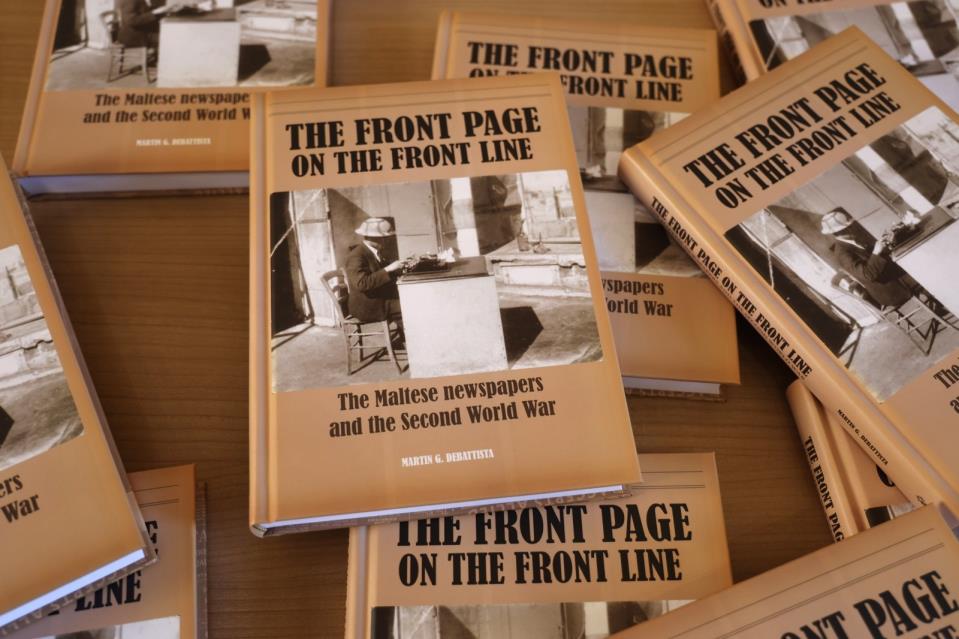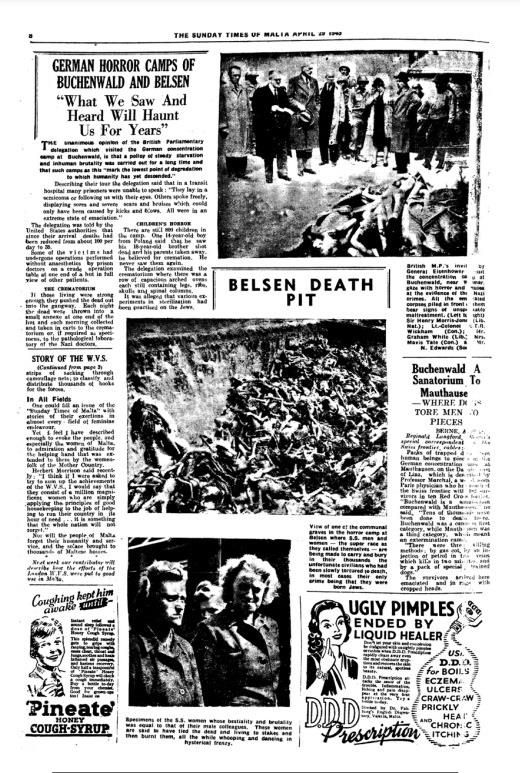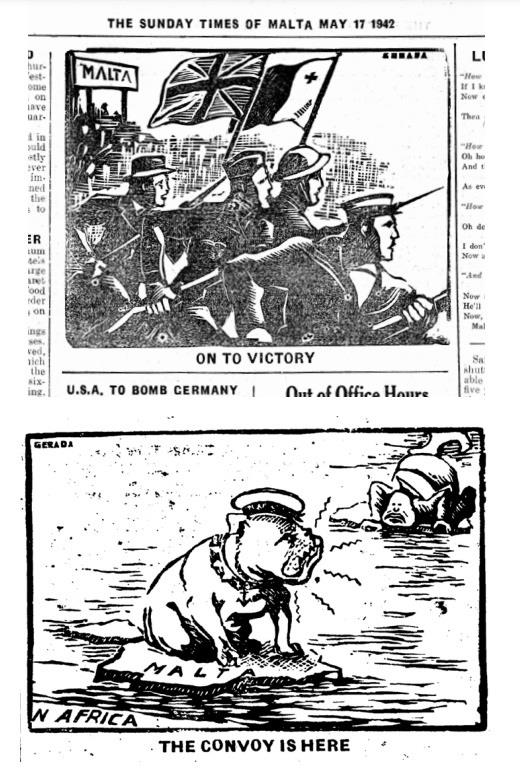Veteran journalist and wartime researcher Martin Debattista said that printed newspapers have been in decline for years and the future for the printed version looks bleak, while the importance of online news gathers ground.
“I am a true believer in online newspapers as the bastion of professional journalism and informed point of view in our post-truth society, which is gripped by disinformation, fake news and new forms of misleading information that are sometimes indistinguishable from traditional wartime propaganda,” Debattista said.
Debattista recently published his new book The Front Page on the Front Line – The Maltese Newspapers and the Second World War, where which he made a number of discoveries by analysing the active role of the Maltese newspapers during the most destructive and devastating war in history.
Speaking with The Malta Independent on Sunday, Debattista highlighted that the purpose of this book was to publish a single reference volume of work that would satisfy the need of whoever was interested in Maltese journalism and Maltese media during the Second World War.
Although there are many books and research on the Second World War, Debattista noted that the extensive range of books about the period tend to gloss over the role of Maltese newspapers, concentrating mostly on the military characteristics of the conflict.

“Many authors limited themselves at just saying that the Times of Malta did not miss an edition depite the bombings. Others used some of the newspaper’s front pages reporting on the major events of the war, such as the award of the George Cross or the surrender of Italy and Germany, for simple illustration purposes,” Debattista said.
The book tells the story of how the Maltese newspapers lived the experience of the Second World War in Malta, from the daily struggle to report in wartime conditions to their role in the Maltese political landscape leading up to the war and their contribution to wartime propaganda.
He explained that the basis of the book is his communication studies undergraduate dissertation at the University of Malta which he had submitted in 1995; pre-internet times.
“The review I had received from the examiners was so good that I was encouraged to publish, but I never found the time to update the research until recently. This new research, especially the part about the newspapers and propaganda, quadrupled the word count and gives the book its current form,” Debattista said.
Debattista explained that his research proves how the newspapers played an important role in terms of propaganda and reflected the daily struggles of the Maltese and the military servicemen during the second great siege of Malta.
Although the book is a piece of scholarly work, it is written with both scholars and average reader in mind, the former benefitting from the full references and a vast bibliography, while the latter is given the relevant context of the war, Debattista said.

Female figures during World War II had important and note worthy roles in publishing
Debattista spoke about the most surprising thing that he learnt in writing this book, saying that he was “surprised by more than one discovery, which made the effort more worthwhile.”
“While I did confirm that the Times of Malta did not miss an issue, her sister paper in the Maltese language, il-Berqa, could also boast the same record and had a larger circulation than the English-language paper,” Debattista said.
“My book does justice to the Maltese newspaper which, I also discovered, used harsher tones against the Italians in terms of the denigration of the enemy. I also confirmed that the newspapers had no role in the creation of the legend of the three obsolete Gloster Gladiator fighters - Faith, Hope and Charity - that defended Malta against all odds at the beginning of the war,” Debattista said.
He also added that amongst his discoveries he found out that though Mabel Strickland, the official editor of Allied Newspaper Ltd, was a true leader in time of crisis, the publishing house had other very capable senior female figures worth of note, like the financial controller Alice Amato and the head of news of the Times of Malta Winnie Cutajar Beck. This was unheard of in conservative Malta at the time.
Asked on how much the Maltese newspaper changed from the Second World War, compared to nowadays, Debattista said that there is no way one can compare newspapers during war and newspapers today.
However, he argued that “even though the front pages of the Maltese newspapers in 1939, before Italy declared war on Britain the following June, reported on a distant war, so much so that the editor of the Leħen is-Sewwa lamented that sales dropped as the buzz over the start of the war on 3 September 1939 had waned.”

“This is the same fatigue we feel today for distant wars. Newspaper readership since then had exploded and then contracted again with the advent of online news,” Debattista said.
He noted that the partisan element is ever present, saying that “today we tend to complain about the strong presence and influence of party political media in Malta, but let’s not forget that the newspapers of Allied Newspapers Ltd belonged to the Constitutional Party and they kept their arch enemy – the Nationalist Party – in their sights all the time.”
During the Second World War the only newspapers to be published regularly thus belonged to a political party. The fact that the leadership of the Nationalist Party was pro-Italian and was interned during the war gave the Stricklandian press even more ammunition, Debattista said.
Meanwhile Debattista also spoke about the type of front pages during the Second World War, saying that text with big headlines rather than large colour photos dominated the front pages, at a time when photography, mostly in black and white, was expensive to produce and print.
He added that “ironically, the first air raids on Malta on 11 June 1940, did not get front page treatment in the Times of Malta and il-Berka (il-Berqa). This was reversed in due course.”
The Times of Malta continued to cover more international events to satisfy its foreign readership in Malta and this trend was only changed towards the end of the 20th century, he said.
Asked on whether he believes that an attractive front page lures people to buy the newspaper, he said that they are a must, but the sales of printed newspapers continues to fall, while on the other hand, that of online newspapers continues to rise.
The book sells for €45 and is available from the major booksellers. It is also available online from the publisher at www.midseabooks.com